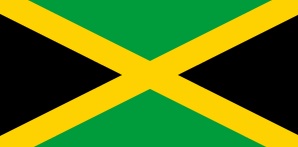
The Government’s P4 Programme
The Government of Jamaica’s (GoJ) medium-term economic growth strategy has benefitted greatly from the Privatisation of state-owned assets and public-private partnerships (PPP) to manage and operate these entities. Since the early 1980s, the GoJ has been relinquishing its interests in assets that span the financial, utilities, tourism and agro- processing sectors. It was not until later, however, that public-private partnerships became a means of providing public infrastructure.
The GoJ’s central implementing agency for Jamaica’s Privatisation and Public-Private Partnerships (P4) Programme is the Development Bank of Jamaica (DBJ), which assists in the facilitation of private sector investments in the local economy. The Ministry of Finance and the Public Service’s PPP Unit works in collaboration with the DBJ to assess PPP projects. Through the programme, investors are invited to own or operate state-owned assets or partner with the GoJ to deliver public infrastructure and services. The P4 programme was given further support with the establishment of a Project Preparation Facility, which funds technical studies and the engagement of advisors, through the Jamaica Foundations for Competitiveness and Growth Project (FCGP).
Among some of the successful P4 transactions completed include:
- Norman Manley International Airport PPP
- Jamaica Pegasus Hotel Privatisation
- Petroleum Company of Jamaica Privatisation
- Sangster International Airport (SIA) PPP
- Highway 2000 PPP
- North-South Highway PPP
- Kingston Container Terminal PPP
- Caymanas Track Ltd. Privatisation
- Wigton Windfarm Privatisation
Given the need to improve the infrastructure and service of the Norman Manley International Airport (NMIA), the GoJ entered into a long-term concession agreement for NMIA in October 2018 with a view to achieving financial close in October 2019. As with the Sangster International Airport, the GoJ will retain ownership of the NMIA and will assume custody after the end of the negotiated 25-year concession period.
Another project in the pipeline for public-private partnership is the School Solar PPP transaction, which aims to reduce the electricity cost to public schools and, in turn, lower the Government’s expenditure, by using Photovoltaic (PV) Solar Systems to generate electricity. This project will begin in 30 schools island-wide and be used as a pilot for future development.


